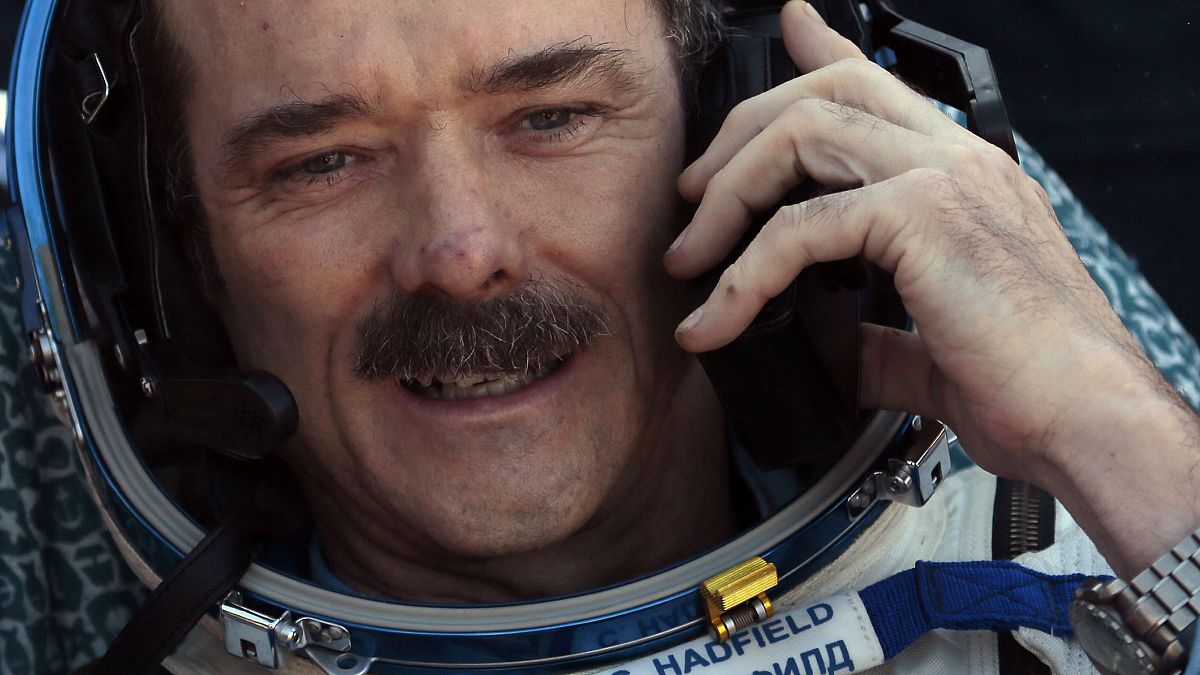Retired astronaut Chris Hadfield is spending lockdown searching for a better test for COVID-19, rewiring his stove, and talking to Euronews about what isolation means - and how to deal with it.
Chris Hadfield is a retired Canadian astronaut and former commander of the International Space Station. He has spent 166 days in space — all of it in tight quarters with colleagues, and unable to step outside for some fresh air. Euronews' Isabelle Kumar spoke with Hadfield about his experience, and got some tips for the rest of us stuck at home with cabin fever brewing.
How do you deal with isolation?
Chris Hadfield: I think the stir-craziness is driven by two things. One, you're kind of worried, and afraid; is this going to get into your household, are people there going to have to deal with the virus themselves? And the second is, your whole life has been shifted, your regular patterns, the regular things you count on. Even the regular environment that you're in is now different. And when you put those two things together, it's really unsettling and difficult to deal with, psychologically. But on a spaceship, that's how we live for months at a time.
So how do you deal with that? Number one I think, is don't just be afraid of the danger of COVID.
And then the other side is, give yourself some pattern to your day. Break your day up into specific sections and give yourself objectives to do. Normally, those are externally dictated to us. But if you can give yourself a list, what do I want to get done if I'm in this house for a week or a day or a month? What are the things that I would really like to get done this period, and then start doing them one at a time.
That's how we live on a spaceship. We deal with the danger, and then we give ourselves tasks and then work at it, so that each day is full and productive. And then you've got the whole universe at your window.
How are you filling your days right now?
CH: I'm working with a research team to try and be able to detect COVID just by laying your fingertip on a light sensor, that's a really bright group of people. I'm working with various companies all remotely, to talk about ideas and how to be more productive.
I'm taking care of my granddaughter, she normally lives in China, so she's learning the alphabet and we're currently struggling with the difference between the letter S and the letter C.
I'm doing projects around the house, I rewired the stove, and I tried to figure out what all the keys did, that I had in a big bucket. I went around and tried every lock and every key that I own and I got to throw away a bunch of keys and I found a bunch of keys that work. So to me, it's a mix of external work as well as private personal family work.
Is there anything that frustrates you about isolation?
CH: I think the interpersonal becomes the most frustrating. People are not behaving normally, self included. The environment is much more constrained, there's much less natural variety. And on a spaceship, it's even worse.
You have to sort of dial yourself back, you have to stop expecting so much of other people. And I think it's good to change your pattern. Listen to people a little more carefully than you normally do, give them a chance to talk. Try some activities together, that you wouldn't normally do.
There's a lot of mutual respect and a lot of compassion and a lot of giving time to each other, and I think that might help in the confines of everybody's homes, who are self-isolating all around the world right now.
Watch the full interview with Chris Hadfield in the video above.
